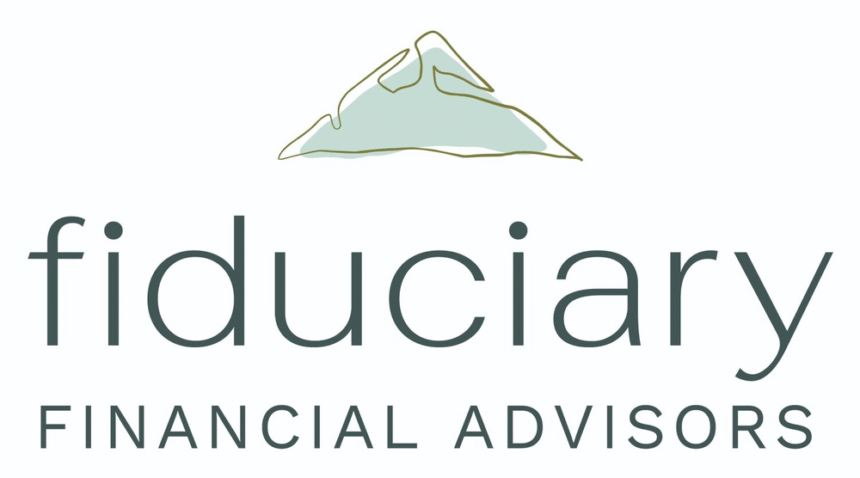Introduction: The Importance of a Fiduciary Financial Advisor
When it comes to managing your finances, the role of a financial advisor is more than just offering investment advice. A financial advisor can help you navigate through the complexities of wealth management, budgeting, retirement planning, tax strategies, and more. However, with so many financial professionals available, it can be overwhelming to choose the right one.
One of the most crucial distinctions in the world of financial advisory services is the fiduciary standard. The term “fiduciary” refers to a financial advisor’s legal and ethical obligation to act in their client’s best interests. This duty sets fiduciary financial advisors apart from others in the field who are held to less stringent standards. Understanding what a fiduciary financial advisor is and why this matters is essential for anyone seeking to protect and grow their wealth.
In this article, we will explore what it means to work with a fiduciary financial advisor, why it’s beneficial for you, and how to identify whether your financial advisor meets this standard. We’ll also look at the implications of not working with a fiduciary and how this can impact your financial outcomes.
What is a Fiduciary Financial Advisor?
A fiduciary financial advisor is a professional who is legally bound to act in the best interests of their clients. This means they must put your financial well-being above their own, providing advice and recommendations that benefit you, not them. The fiduciary standard is a high level of accountability that goes beyond simply offering suitable advice or products.
While all financial advisors provide advice and guidance, not all of them are held to the fiduciary standard. Some advisors are subject to a lower standard known as the “suitability standard,” which only requires that their recommendations be appropriate for the client but does not mandate that they always act in the client’s best interests.
For example, a non-fiduciary advisor may recommend an investment that is suitable for your financial goals but may not necessarily be the best available option. In contrast, a fiduciary financial advisor must ensure that the products and services they recommend are the best options for you, even if it means earning lower compensation.
Why Fiduciary Financial Advisors Are Crucial for Your Financial Health
Protecting Your Interests
When it comes to financial planning, the stakes are high. Bad financial advice can lead to missed opportunities, unnecessary taxes, and poor investment returns, all of which can have long-lasting impacts on your financial future. A fiduciary financial advisor is someone who is legally bound to protect your interests, which provides an extra layer of assurance and trust.
Whether you’re saving for retirement, investing for the future, or managing significant wealth, a fiduciary advisor will prioritize your financial goals and avoid conflicts of interest. Their duty is to ensure that the products they recommend align with your long-term needs, rather than pushing financial products that may generate higher commissions or fees for them.
Mitigating Conflicts of Interest
In the financial world, advisors often face pressure to sell specific financial products in exchange for commissions. These conflicts of interest can cloud the advice that clients receive. A fiduciary financial advisor must avoid these situations and disclose any potential conflicts that could arise.
For example, a non-fiduciary advisor may recommend a mutual fund because they receive a commission for doing so. A fiduciary financial advisor, on the other hand, will avoid recommending such a product unless it is in your best interest. Fiduciaries are bound to disclose any compensation they may receive for recommending a particular product, ensuring full transparency.
Legal Accountability
The fiduciary duty is not just a professional guideline; it’s a legal requirement. Fiduciary financial advisors are held accountable by regulatory bodies such as the Securities and Exchange Commission (SEC) and the Financial Industry Regulatory Authority (FINRA). If a fiduciary advisor fails to act in their client’s best interests, they can face significant penalties, including fines, disbarment from the industry, and even legal action.
This legal accountability ensures that fiduciaries must adhere to a strict code of ethics and professionalism, offering clients peace of mind that their financial interests are in safe hands.
The Role of a Fiduciary Financial Advisor in Your Financial Journey
A fiduciary financial advisor’s role is to guide you through life’s financial complexities, helping you navigate critical decisions and long-term planning. Whether you are an individual investor, a family with young children, or a high-net-worth individual looking to preserve your wealth, a fiduciary advisor can help you map out your financial goals and ensure you’re on the right track to achieving them.
Retirement Planning
One of the most common areas where fiduciary financial advisors add value is retirement planning. Planning for retirement involves assessing your current financial situation, determining how much you need to save, and selecting the right investment strategies to grow your savings. A fiduciary advisor can provide objective advice, helping you choose the best retirement plans, tax strategies, and investment vehicles that align with your long-term goals.
Investment Management
Fiduciary financial advisors also play a key role in managing investments. They assess your risk tolerance, investment goals, and time horizon to develop a diversified portfolio that suits your needs. Whether you’re investing in stocks, bonds, or real estate, a fiduciary financial advisor ensures that the investments recommended are in your best interest, helping you grow your wealth while minimizing risk.
Tax Planning and Strategy
Tax planning is another critical area where fiduciary financial advisors provide valuable expertise. A well-planned tax strategy can significantly reduce the amount of taxes you owe, increasing the amount of money you have to invest or save. Fiduciaries are committed to ensuring that your tax strategies align with your overall financial plan and are designed to minimize your tax burden over time.
Estate Planning and Wealth Management
As you accumulate wealth, estate planning becomes increasingly important. A fiduciary financial advisor can help you create an estate plan that ensures your assets are distributed according to your wishes after your passing. This includes establishing trusts, setting up life insurance policies, and minimizing estate taxes. Fiduciaries work closely with legal professionals to ensure that your estate plan is comprehensive and aligned with your financial objectives.
How to Find a Fiduciary Financial Advisor
Choosing the right fiduciary financial advisor can feel like a daunting task, but there are several steps you can take to ensure that you find the best advisor for your needs. Here are some tips to guide you through the process:
1. Ask Directly About Their Fiduciary Status
The first and most straightforward step is to ask the financial advisor if they operate under a fiduciary standard. A reputable fiduciary financial advisor will be transparent and upfront about their fiduciary duty. They should have no problem confirming that they are bound to act in your best interest.
2. Look for Specific Certifications
Financial advisors can hold various certifications that demonstrate their expertise and adherence to fiduciary standards. For example, Certified Financial Planners (CFPs) are required to act as fiduciaries when providing financial advice. Similarly, Registered Investment Advisors (RIAs) are also legally required to follow the fiduciary standard.
When choosing an advisor, check their certifications and professional credentials to ensure that they have the necessary qualifications and experience.
3. Understand Their Compensation Structure
Fiduciary financial advisors typically operate on a fee-only basis, meaning they are compensated for their time and expertise rather than receiving commissions for selling financial products. This eliminates potential conflicts of interest, as the advisor’s compensation is not tied to the products they recommend. Understanding the compensation structure of your advisor can give you peace of mind knowing that their advice is unbiased and solely focused on your best interests.
4. Check for Disclosures
Fiduciary advisors are required to disclose any potential conflicts of interest, including any fees or compensation they may receive from third parties. These disclosures should be readily available for you to review. If an advisor hesitates or refuses to provide this information, it may be a red flag.
The Risks of Not Working with a Fiduciary Financial Advisor
While working with a fiduciary financial advisor offers many benefits, failing to choose one can expose you to significant risks. Non-fiduciary advisors may not always have your best interests at heart, potentially leading to higher fees, unsuitable investments, and missed opportunities for wealth growth.
Some of the risks of working with a non-fiduciary advisor include:
- Conflicts of Interest: Non-fiduciary advisors may be incentivized to recommend products that generate commissions for them, even if they are not the best options for you.
- Higher Costs: Without a fiduciary duty, advisors may recommend higher-cost products or services, reducing the overall returns on your investments.
- Inadequate Advice: Without the fiduciary standard, there is less accountability for the advice provided, which could result in poor financial decisions that hinder your ability to achieve your goals.
Why Your Advisor’s Duty Matters
Choosing a fiduciary financial advisor is one of the most important decisions you can make when it comes to securing your financial future. By working with a fiduciary, you ensure that your financial advisor is legally and ethically bound to put your interests first. This provides an added layer of protection, giving you peace of mind that your advisor is committed to helping you achieve your financial goals.
From retirement planning to investment management, tax strategies, and estate planning, fiduciary financial advisors provide the guidance and expertise necessary to navigate the complexities of the financial world. Their commitment to transparency, ethical behavior, and legal accountability ensures that your financial interests are always protected.









